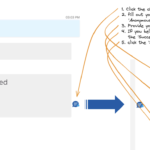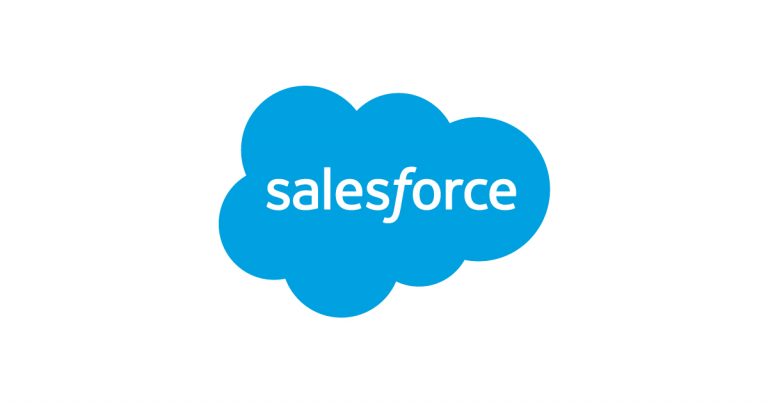What will generative AI mean to small companies in 2024? Will employers address the AI skills gap with any real urgency? What’s the one thing that could doom AI initiatives?
We asked artificial intelligence (AI) leaders from Salesforce and beyond to tell us what they see in store for generative AI in 2024. Here are their AI predictions.
For corporate boards, AI will become the top tech priority
“As regulations become more focused on topics like liability and copyright for AI, the technology will take center stage in corporate boardrooms. Some boards will bring in outside experts for AI governance, while others will think about this expertise as a factor in recruiting, especially for audit/enterprise risk committees. We’ll see a similar trajectory with AI as we saw when cybersecurity emerged as a board priority, and grew over the last few decades in formality and universality. This time, however, the growth will be much faster.” — Paula Goldman, chief ethical and humane use officer, Salesforce
Only companies with trusted AI will prevail
“Companies with untrustworthy AI will not do well in the market. Customers are going to buy the AI that’s always updated and patched with provenance, trust, and security. As an investor (and a capitalist, clearly), I believe the market will demand it and the market will reward it.” — Jerry Chen, partner, Greylock
Companies will approach learning with unprecedented urgency
“2024 will be a skills revolution as AI redefines every job and every department. A good analogy is how in the mid-1990s, every employee in every company in every industry needed to rethink how they worked and wrote a new job description for the internet era. Whether you work as a marketer, lawyer, customer support representative, or software engineer, we need to learn how to use AI to fundamentally do our jobs differently. It’s just like 20 years ago when email and Google search changed what we spend time on, except now it’s happening much faster, so we have to approach learning with greater urgency.” — Clara Shih, CEO of AI, Salesforce
Need to learn AI skills?
Employers want to use generative AI. The problem is, many employees just don’t have the know-how. The good news is anyone can learn in-demand AI skills.


Natural human language will become the language of machines
“Two things: First, multimodal is going to be the next big frontier as an industry in the next year or two. The ChatGPT moment for 2024 will be more around multimodality, which is telling stories that seamlessly cross from text to image to 3D to animation — and all of the above.
“Second, when you get to the world of natural language as a way to communicate with machines, the role is going to reverse dramatically. We have spent the last 40 years teaching humans to speak to computers in weird languages that machines can understand. I think we are about to see a world where machines start learning how to speak to us in our language. That role reversal will have such a big impact because the friction of knowledge sharing and learning is just going to collapse dramatically because now natural language becomes the language of machines.” — Abhay Parasnis, founder and CEO, Typeface
Much smaller, task-specific AI models will proliferate
“The majority of companies, academic institutions, and research institutes building AI will move from massive, multipurpose foundation models to creating much smaller, highly trained, task-specific models. The benefits of these small, bespoke models are lower cost-to-serve, lower carbon and water footprint to train, greater accuracy than general-purpose models, and the potential to run on laptops or mobile devices (edge computing). The latter offers greater privacy and highly personalized results if these models can be grounded in or fine-tuned on an individual’s data. Creating small, inexpensive, but incredibly accurate models can commoditize expert skills and will enable anyone to build capabilities specific to their needs.” — Kathy Baxter, principal architect, reponsible AI and technology, Salesforce
The generative AI stories you cared about most in 2023
Our most-read generative AI blog posts of 2023 all had one thing in common: They showed business leaders were hungry for practical guidance.



AI will turbocharge the capabilities of single-person companies
“In the same way that the internet and mobile seeped everywhere, that’s going to happen with intelligence. It will be unthinkable to not have intelligence integrated into every product and service. It will just be an expected, obvious thing. This will be a big shift in how we interact with the world and technology.
A lot of people use ChatGPT to help them write code. Maybe today it’s 25%, then it can eventually go up to as high as 90%. At some point it’s letting you do things you just couldn’t do before. These quantitative shifts lead to qualitative shifts. The cycle time and iterative feedback loop will change what a single programmer is capable of. That will change what a single person running a one-person company is capable of. This amplification of one’s individual capabilities — one person with a good idea and a good understanding of what a customer needs— will allow one to execute on what would have taken complex, many-, many-person teams before.” — Sam Altman, CEO, OpenAI, during an on-stage conversation with Salesforce CEO Marc Benioff at Dreamforce 2023
The ‘I’ in CIO will now mean ‘intelligence’
“In 2024, in the absence of a Chief AI Officer (CAIO) dedicated role in the enterprise, the CIO will take more of an active ownership role in building the intelligent autonomous enterprise. The ‘I’ in CIO will evolve from ‘information’ to ‘intelligence.’ And the ‘A’ in AI will be better described as augmented intelligence, given the CIO’s job is to augment and redesign business processes to be more efficient and effective via automation and scaled autonomy. For the next decade, if your business cannot deliver value at the speed of need, you will not survive.” — Vala Afshar, chief digital evangelist, Salesforce
AI will transform creative work
“The baseline and fundamental aspects of video – work that used to take filmmakers hours and sometimes even days or weeks – will now be almost fully automated or simplified with AI tools like Runway. For example, the editing team for the film “Everything Everywhere All at Once” used Runway to save time and automate some of the most tedious aspects of editing. The interesting thing about that movie is that the editing and visual effects team was made up of only seven people. That’s a great sign of what’s to come when we think about what it means to make great stories, great art, great films. This is just one example of how AI will be a major force of change. We’re going to a moment in time where someone, a singular person, is going to win an Academy Award for making and editing and shooting an entire movie.” – Cristóbal Valenzuela, co-founder and CEO, Runway
AI predictions can be tricky, but…
2023 was a watershed year for generative AI, as it grew exponentially faster than any other technology, including social media, mobile, and the commercial web. It was a year business leaders spent learning about its capabilities, starting small pilots, and thinking about resource allocation. It’s not going too far out on a limb to say 2024 will be the year they implement generative AI more broadly to realize what is expected to be trillions of dollars in value.











